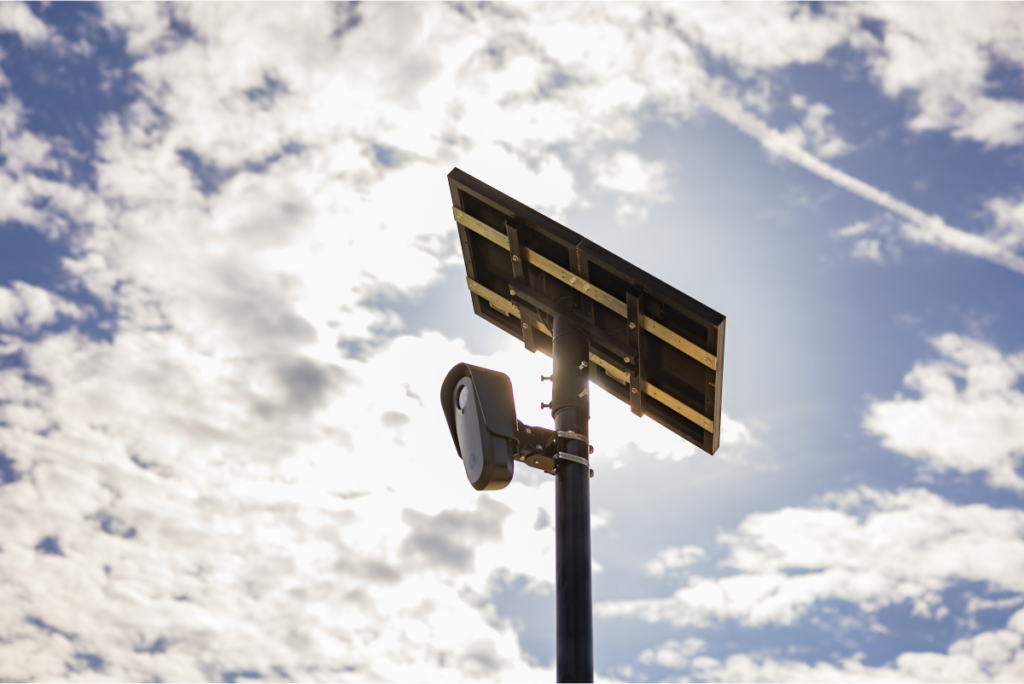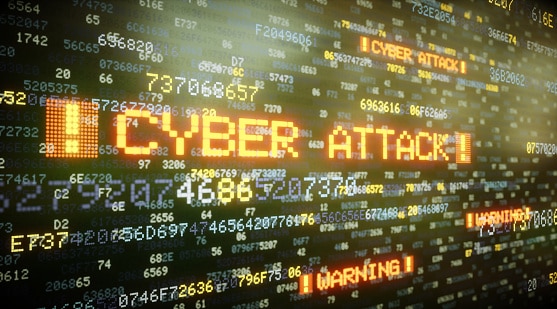
ELBERT COUNTY- Freedom from Government or sliding toward police state … BOCC comes clean stating that the Flock system was a mistake and not for a Free Elbert County, FLOCK Safety LPR system will not be renewed…
It is always the same story, selling a state of fear with the promise of protections; technology will help keep us safe’, and the cost is your individual freedom and privacy that is the promise of LPR, a tool that may or may not assist in tracking an alleged criminal, the dirty little secret is that the system runs 365/24/7 and is cataloging ALL license plates, if you are in their purview that means you. Perhaps not so well known this system and other surveillance systems have been out there for public review for years from the discussion to actual installations around the United States. The pro side is how good it is for Law Enforcement, the downside is it is just another nail in the protections granted by the US Constitution.
Reportedly nine LPR’s were placed into service last year, authorized by the BOCC and the ECSO, two are at the entrances to Legacy Circle in Elizabeth. Legacy Circle has two entrances and is one of the main shopping centers for the area as the WALMART is located in the circle as well as the newer addition of McDonalds on the west end as well as the only entrance from HWY 86 to Legacy Academy.
The public was not informed about the addition of these cameras nor given information about the organization operating them, hidden policing operations equal police state and limited to no oversight. Informed or not there is one located on Sante Fe Trail, Camera # 7, that has received the wrath of those valuing their privacy as it has been destroyed by shotgun fire three time and replaced three times, according to Undersheriff Dave Fischer, no perpetrators have been identified.
BOCC Commissioner Dallas Schroeder commented …. ““In our country, the government should not be tracking us unless it has individualized suspicion that we’re engaged in wrongdoing,” the group said. That is music to Schroeder’s ears.
“This is not a conservative or a liberal issue,” he said. “Freedom is more important than public safety. Any freedom-loving American should have concerns with this.”” …. From the Gazette Article (https://rb.gy/1sghh6)

There are many articles about LPR systems installations, any group or organization with the $$$$ dollars can have them installed and either monitor the system personally or pay the fee to FLOCK and have their team monitor the feeds. The systems are complexly unregulated and open to subjective interpretations, something Law Enforcement and those with a narrow view fail to recognize.
Per FLOCKS website approximately 700K crimes have been solved due to these systems, no mention regarding how many civil rights violations nor incorrect data causing harm to citizens. So, with an estimated 341 million persons in the US the impact is less than .25 percent, again at what cost to the citizen?
The ACLU has posted an article with the following concerns. FEB13, 2023 ‘How to Pump the Brakes on Your Police Department’s Use of Flock’s Mass Surveillance License Plate Readers’ (https://www.aclu.org/news/privacy-technology/how-to-pump-the-brakes-on-your-police-departments-use-of-flocks-mass-surveillance-license-plate-readers)
“Working with police departments, neighborhood watches, and other private customers, Flock not only allows private camera owners to create their own “hot lists” that will generate alarms when listed plates are spotted, but also runs all plates against state police watchlists and the FBI’s primary criminal database, the National Crime Information Center (NCIC). Flock’s goal is to expand to “every city in the United States,” and its cameras are already in use in over 2,000 cities in at least 42 states.
Unlike a targeted ALPR camera system that is designed to take pictures of license plates, check the plates against local hot lists, and then flush the data if there’s no hit, Flock is building a giant camera network that records people’s comings and goings across the nation, and then makes that data available for search by any of its law enforcement customers. Such a system provides even small-town sheriffs access to a sweeping and powerful mass-surveillance tool and allows big actors like federal agencies and large urban police departments to access the comings and goings of vehicles in even the smallest of towns. And every new customer that buys and installs the company’s cameras extends Flock’s network, contributing to the creation of a centralized mass surveillance system of Orwellian scope. Motorola Solutions, a competitor to Flock, is pursuing a similar business model.”

Not to worry, our systems are impenetrable, says Flock Safety spokesperson Connor Metz-
From the Gazette article ‘Big Brother or Crime Fighter?’
“Metz also stated that Flock’s cameras are impossible to access remotely because they “do not have public-facing IP addresses.”
Flock Safety started business just six years ago and already operates in at least 4,000 American communities, according to its website. At least 60 of those are in Colorado, according to Metz”
The arrogance in the statement itself should raise concern as there are ‘secure’ systems across the globe that are not only under constant attack but are routinely hacked and/or accessed from external means and internal means by those with nefarious intentions.
The following are a sampling from last year: CNN EXCLUSIVE: US Government Agencies hit in global cyberattack https://www.cnn.com/2023/06/15/politics/us-government-hit-cybeattack/index.html); FORBE: Bank of America Warns Customers of Data Leak following 2023 Hack Feb 13, 2024 https://www.forbes.com/sites/daveywinder/2024/02/13/bank-of-america-warns-customers-of-data-breach-following-2023-hack/?sh=287167f6afaf); From LA Times- San Bernardino County pays $1.1-million ransom over Sheriff’s Department hack (https://www.latimes.com/california/story/2023-05-06/hackers-targeted-a-california-sheriffs-department-should-they-have-paid-the-ransom); LA Times- Q&A: Even homeowner associations are targets of hackers looking to profit off cybercrime (https://www.latimes.com/business/la-fi-associations-cyber-crime-20170622-story.html)
cont’d
FORBES DEC 21, 2020- No One Is Safe And Why You Should Be Worried (https://www.forbes.com/sites/emilsayegh/2020/12/21/no-one-is-safe-and-why-you-should-be-worried/?sh=3c630d8b68de) ….”It looks like we’re closing out 2020 with significant cybersecurity incidents, with forthcoming implications that have critical importance across the world. For example, reports are coming in about cyber-attack operations carried by state sponsored threat actors against bodies that manufacture, plan to distribute, and validate Covid-19 vaccines, as well as the U.S. Department of the Treasury, U.S. Department of Commerce, the Pentagon, and NASA. As the CIO of Johnson & Johnson, a Covid-19 vaccine research and development company, described it, cyber-attacks against their company are now being registered “every single minute of every single day.”
Around the nation, schools are under continual cyber-attacks as well, at a time when classrooms are challenged in remote classroom situations. An entire school district in Baltimore had to shut down due to a ransomware attack the day before Thanksgiving. A ransomware attack was behind a month-long medical records digital system shutdown at the University of Vermont Medical Center. No target is off limits, and lawbreakers are taking advantage of the vulnerable dependence on virtual technologies due in part to the global pandemic. There are nation-states, cybercriminal groups, and lone wolves in this crazy mix of cyberthreats.

FireEye Hacked, Now What?
One of the well-known global leaders in information security, FireEye, was hacked with the company’s CEO reporting that the attack was launched by “a nation with top-tier offensive capabilities.” If a leader in information security such as FireEye—along with the Pentagon and U.S. Treasury Department—can get hacked, we can all conclude that no one is safe.” ….
So how do these systems function? According to the Brennan Center for Justice article dates SEP 10, 2020 (https://www.brennancenter.org/our-work/research-reports/automatic-license-plate-readers-legal-status-and-policy-recommendations) “How Do Automatic License Plate Readers Work?
Automatic license plate readers use a combination of cameras and computer software to indiscriminately scan the license plates of every car passing by. The readers, which can be mounted on stationary poles, moving police cruisers, and even handheld devices, log the time and date of each scan, the vehicle’s GPS coordinates, and pictures of the car. Some versions can also snap pictures of a vehicle’s occupants and create unique vehicle IDs … The devices send the data to ALPR software, which can compare each plate against a designated “hot list.” Such lists can include stolen cars and cars associated with AMBER Alerts for abducted children. … They can also reference vehicles that are listed in local and federal databases for reasons that may include unpaid parking tickets or inclusion in a gang database. … These queries happen automatically, though officers can also query plates manually. …
… These tools may cost little or nothing for police, often because the drivers themselves shoulder the cost of the technology through a fee charged on top of traffic ticket costs. … Notably, drivers in some jurisdictions can be jailed for failure to pay the private company’s fee. …
Law enforcement use of ALPRs is rapidly expanding, with tens of thousands of readers in use throughout the United States; one survey indicates that in 2016 and 2017 alone, 173 law enforcement agencies collectively scanned 2.5 billion license plates. … According to the latest available numbers from the Department of Justice’s Bureau of Justice Statistics, 93 percent of police departments in cities with populations of 1 million or more use their own ALPR systems, some of which can scan nearly 2,000 license plates per minute. … In cities with populations of 100,000 or more, 75 percent of police departments use ALPR systems. … In some of the largest U.S. cities, millions of license plates are scanned over the course of a year. … According to a 2020 California state auditor report, the Los Angeles Police Department (LAPD) alone has accumulated more than 320 million license plate scans, and the Sacramento Police Department recorded up to 1.7 million scans in just one week. … Despite this expansive data collection effort, many departments have not developed a policy to govern the use of ALPR technology or provided privacy protections. While states such as California and Nebraska have passed laws requiring their departments to establish ALPR policies, not all departments have complied. …
Law enforcement use of ALPR data is not limited to reads captured by departments’ own devices; many departments have contracts with vendors that grant them access to private databases containing scans from private ALPRs and from other local and federal law enforcement agencies. For example, Vigilant Solutions (owned by Motorola Solutions), a leading provider of ALPR data to police based in Livermore, California, sells access to its database of more than 5 billion license plate scans collected across the country, including 1.5 billion reads provided by law enforcement agencies. This process creates a revolving door of license plate scans from law enforcement to Vigilant Solutions back to law enforcement agencies. …
Moreover, access to ALPR tools and data is not limited to law enforcement. For example, government agencies use license plate readers to automate toll collection and for pollution research; businesses analyze ALPR location data when assessing loan applications to help verify an applicant’s listed home address or to detect commercial use of vehicles when analyzing insurance claims; and private individuals and neighborhood associations can buy ALPRs for home and neighborhood security purposes. … These private actors can maintain their own hot lists of flagged license plate numbers and can share any data they collect with law enforcement at their discretion. … Similarly, public agencies that collect and store ALPR data for non–law enforcement purposes may hold onto a dataset that proves alluring for police departments.” ….

…. “What Does the Law Say?
The U.S. Constitution’s Fourth Amendment protects people from unreasonable searches and seizures. … According to the U.S. Supreme Court, the Amendment’s purpose “is to safeguard the privacy and security of individuals against arbitrary invasions by government officials.” … Until the late 1960s, the Supreme Court ruled that Fourth Amendment protections only applied to searches and seizures of tangible property. … But in 1967, the Court expanded Fourth Amendment protections, holding in Katz v. U.S. (1967) that “the Fourth Amendment protects people, not places.” … Specifically, the government was now prohibited from intruding upon a person’s “reasonable expectation of privacy.” In other words, if an individual seeks to keep something private, and that expectation of privacy is “one that society is prepared to recognize as reasonable,” the Fourth Amendment is triggered, and the government generally must obtain a warrant supported by probable cause before conducting a search. … This approach seeks to protect the “privacies of life” from “arbitrary power,” and to “place obstacles in the way of a too permeating police surveillance.”” ….
It is clear that there are arguments on both sides of LPR, however, until firm and enforceable regulations congruent with the US Constitution and all of the protections afforded by it to the US Citizens FLOCK, its competitors and ALPR/LPR systems are open to misuse and abuse by unelected and unaccountable persons known and yet to be identified.
So may good be upon the Elbert County Commissioners for using introspection, common sense, and supporting a Constitutional county in their decision to not renew this not ready for prime time crime fighting tool.

 Menu
Menu
